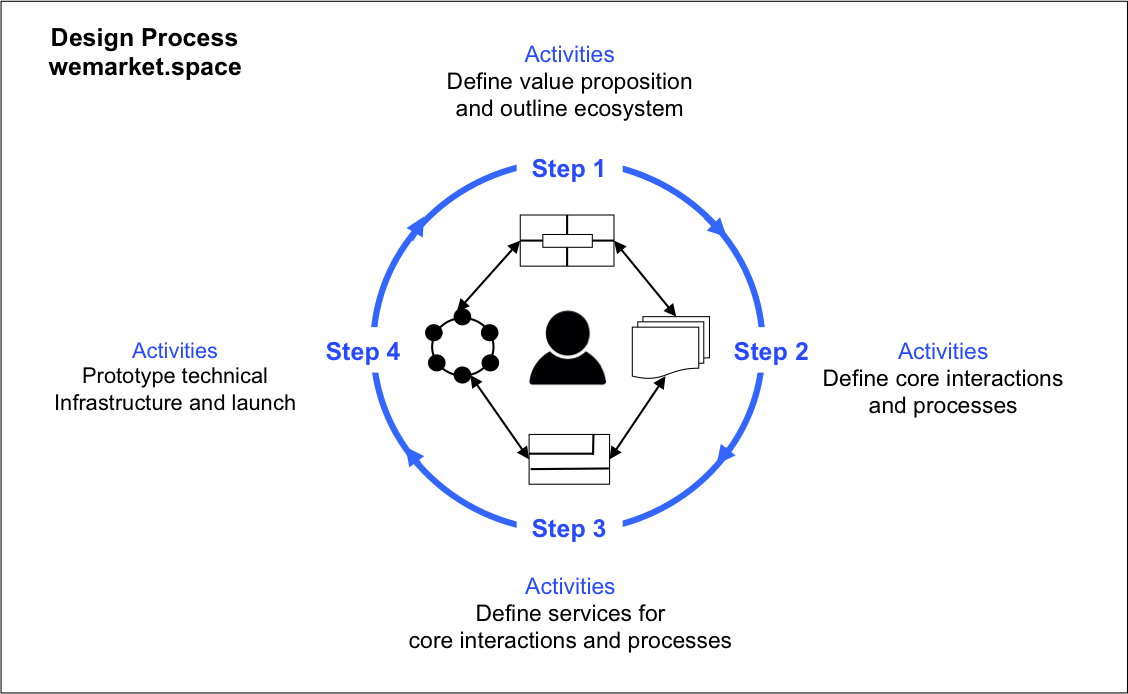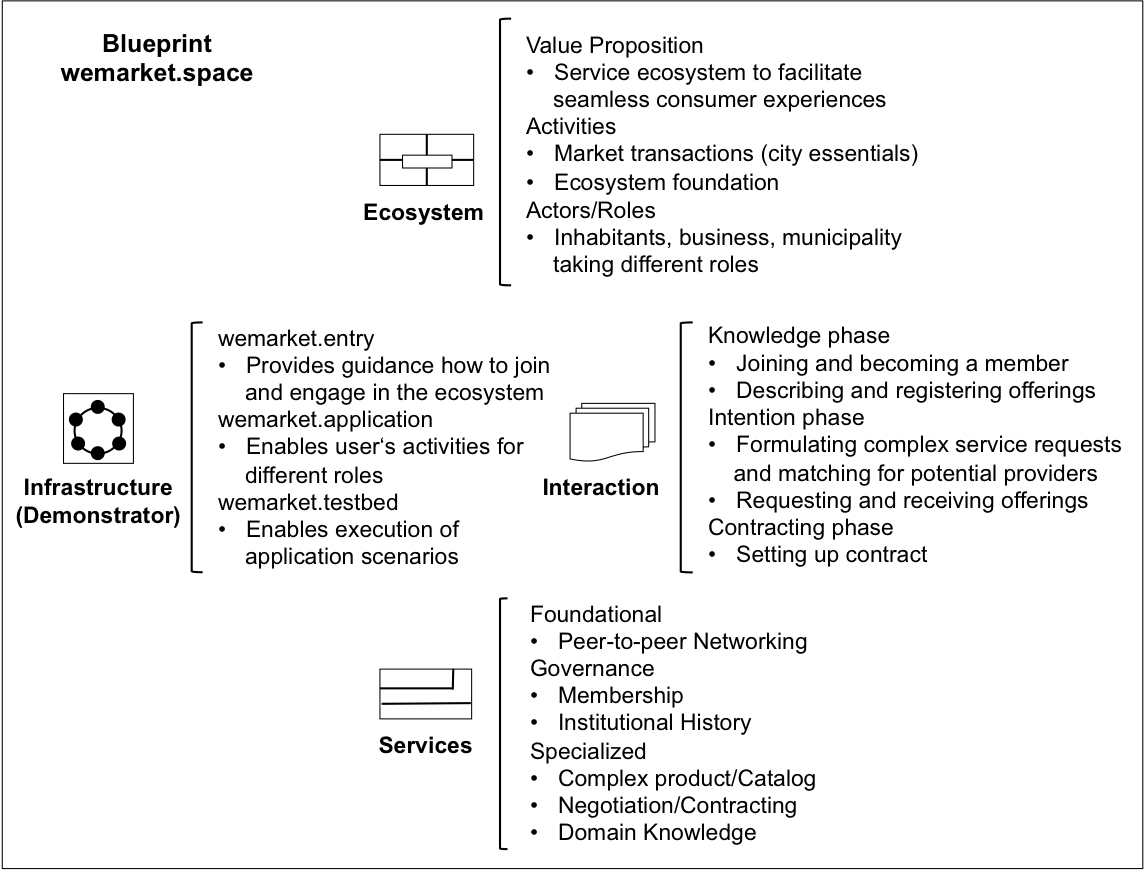wemarket.space
Applying Framework for Distributed Market Spaces in Smart City Context.
Research Project
The platform economy denotes a subset of economic activities enabled by platforms such as e.g., Amazon, Alibaba, and Uber. Due to their tremendous success, more and more offerings concentrate around platforms increasing platforms' positional-power, hence leading towards a de-facto centralization of previously decentralized online markets. Furthermore, platform models work well for individual products and services or predefined combinations of these. However, they fall short in supporting complex products (personalized combinations of individual products and services) the combination of which is required to fulfill a particular consumer need, consequently increasing transaction costs for consumers looking for such products. To address these issues, we envision a "post-platform economy"- an economy facilitated by decentralized and self-organized online structures named as Distributed Market Spaces. This work proposes a comprehensive model to serve as a guiding framework for the analysis, design, and implementation of Distributed Market Spaces. The proposed model leverages the St. Gallen Media Reference Model by adjusting existing and adding new entities and elements. The resulting multidimensional and multi-view model defines how a reference Distributed Market Space a) works on the strategic and operational level, b) enables market exchange for complex products, and c) how its instances might unfold during different life stages. In a case study, we demonstrated the application of our model and evaluated its suitability of meeting the primary objectives it was designed for.
Demonstrator
Demonstration requires using browsers Google Chrome, Mozilla Firefox, or Opera as these support WebRTC. Which is required to enable web browsers with Real-Time Communications (RTC).
Presents information about the wemarket.space and provides guidelines on how to join and engage in the wemarket.space.
Represents the user application. It enables user's activities for consumer and provider roles, currently supporting only human interfaces. It supports the handling of city essentials scenarios and thus demonstrates the market exchange via wemarket.space as a service ecosystem.
Demonstration Scenario: Planning a perfect evening with friends Consider a couple who wants to spend a pleasant evening with friends in the city-theatre. As a consumer, this couple is demanding a combination of services that includes: tickets for the city-theatre, reservation of a table at an Italian restaurant, finding a parking space close to both locations, and engaging a well-rated babysitter to watch after children. The demand spans four different service domains (i.e., ticketing, gastronomy, parking, and babysitting) and has to consider contextual information regarding the schedule, location, and ratings of a particular service.
Set up to enable demonstration of different application scenarios. It consists of a basic configuration of the underlying network, domain-ontologies, and initial catalog of registered providers. Catalog of providers have been generated in the form of RDF documents following the concepts defined by the DMS Ontology. The generated data draw on existing entries (e.g., yellow pages) and represent a mix of private and public companies for domains babysitting, gastronomy, parking, and ticketing. Each of them is considered a member of wemarket.space with a unique MemberID and is registered for the provider role.


